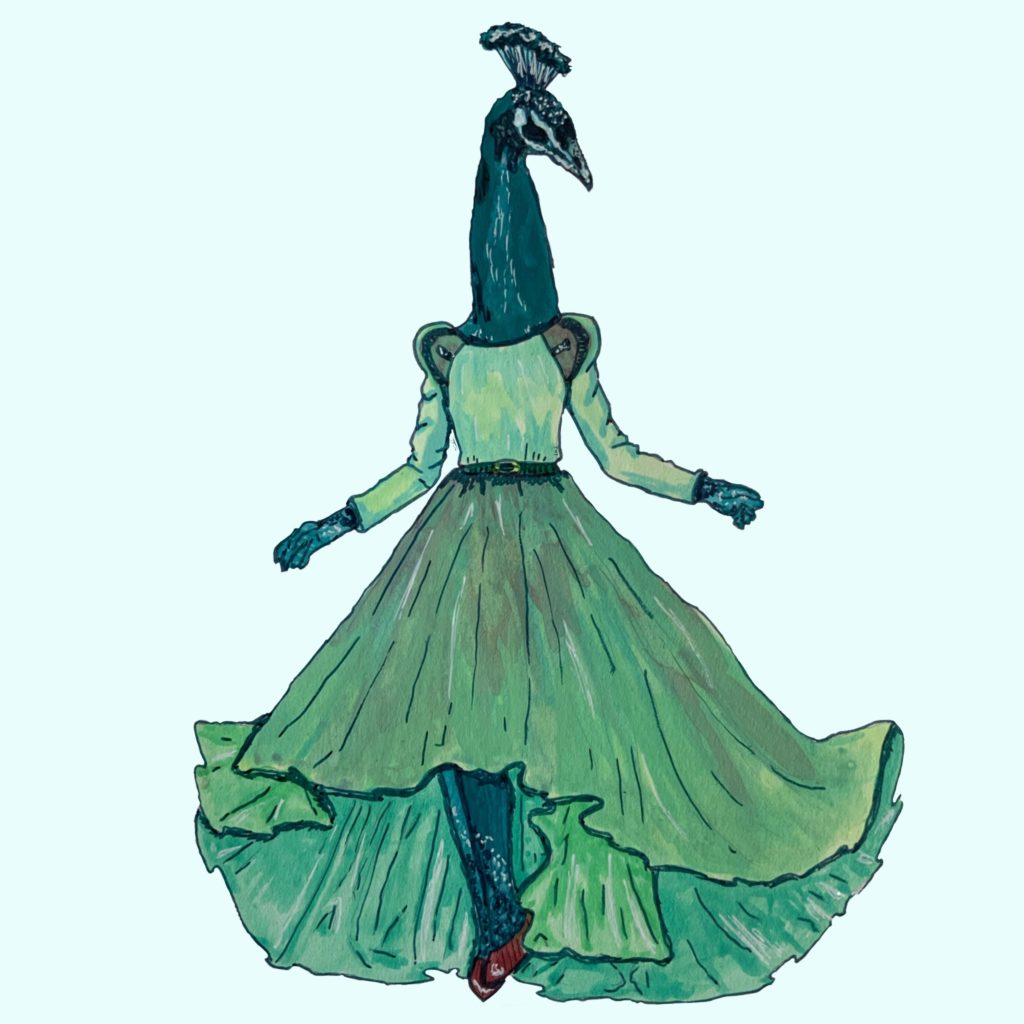
I guess you could say that I was one of the lucky ones who got married at the “perfect” age. In a society that respects and idealizes marriage as a form of security and honor, I was certainly considered lucky at the time. When I got married at the age of twenty, it felt like I’d achieved something — like I’d somehow achieved a higher sense of respect (both self-respect and otherwise). It felt like I was finally worthy of something — my voice, perhaps? We’ll get to the bottom of that later.
For the first time, it felt like I was looked at differently, almost like I was being praised for who I was. If you grew up in a sheltered, moderately religious, somewhat cultured Saudi family that’s not too spor, you may relate. I checked off nearly all the boxes society hoped I would have: I was a devoted Muslim and an obedient daughter; I had good grades, good looks, a voluptuous body, and I came from a well-known family. By the standards of our social circles, I’d practically hit the jackpot.
Despite that I checked off a good number of qualifications from that list, I didn’t always feel worthy. Getting married made me feel worthy. It made me feel chosen and seen by others in a new way. At the time, it gave me a sense of self-confidence. I felt like a celebrity amongst my peers and family; people who wouldn’t normally speak to me would call and congratulate me. A sense of jealousy and wonder was present amongst my peers when the news of my engagement broke out. I remember one of the girls coming up to me and saying, “you’re the first one from our shilla to get married, and one of the first from our entire school cohort, too.” I was already in college at the time, but I still had strong ties with my highschool friends. If you live in Jeddah, you know precisely how small a society we live in and how tightly connected everyone is to one another. It’s one of those ‘her cousin’s cousin is my aunt’ kind of communities.
That being said, let’s go back in time and see the dynamic that led to this kind of thinking and belief system in the first place. I remember my uncle’s wife saying to me once that she didn’t know how I would end up being married with the way I looked. Girls from school bullied me for being chubby, teachers would always complain to my mother about how aloof and behind I was at work. I even remember my mom saying things like, “You’re such a burden! Why can’t you be like normal kids your age?!” Nannies would complain about how messy and undisciplined I was. I was in a constant state of self-blame, and I was constantly seeking external approval.
One of the main struggles I experienced during my late teenage years not being in a relationship, involved or married. I was devastated by this fact, and I felt like I was falling behind in life because of it. I’d seen many of my college classmates get married by our second year of college. During that period of time, eligible suitors appeared through family recommendations, and this is how most of us met our husbands.
In the summer of 2007, my parents were busy taking care of my grandmother as she was having health issues. They left the country for the United States of America, and they left me responsible for the house, my siblings, and my studies to boot. My parents had to postpone arranging a meeting between me and a potential suitor at the time, as the priority was my grandmother’s health. I later found out that due to the delay, the same suitor who originally came to me went to see one of my classmates. I felt a sense of unworthiness and of betrayal, even though nothing had happened between us. At the time, I merely silently suffered in my head. The narrative of not being good enough kept replaying in my mind. My worth was tied to my potential mate. My worth lied outside myself.
A couple of months later, my grandmother and parents safely returned home. When they came back, I felt relief. Life seemed to look up again, and the same first suitor returned. Mama and Teta were thrilled and I was so excited. I wasn’t one hundred percent sure about him, but I was so eager about the idea of marriage that I gave it a shot. We started talking and there was a shofa. I was overwhelmed and wasn’t sure. To me, it seemed as if I was waiting for some kind of approval that I would be chosen more than considering whether or not I wanted to choose him.
We were talking for about ten days. It felt awkward, scary, and exciting. As we were talking, we decided to move forward with the engagement. A couple of days before, I had a panic attack — a feeling I’d never experienced before. I told my mother and grandmother about it, and at the time we thought it was the evil eye or some other kind of evil doing. I suddenly simply couldn’t bear to look at the man, let alone talk to him. I was sobbing the whole night and begged my mom to call it off.
I couldn’t even do it myself. I just left without any reason, and I asked my parents to do so on my behalf. My mom and dad followed my requests but were upset with me for misleading the poor man. They both didn’t understand or comprehend that I did not understand my own feelings and that I couldn’t even talk it out without feeling like my reaction was out of place and unexplainable. For my parents, there always had to be a valid reason for everything, emotions were just not an exception in this case.
Life went on, I didn’t understand what had happened to me. I was just emotionally blocked and felt guilty, I felt like I had committed a crime by leaving him hanging. I had never met this part of me before. I didn’t understand her and she confused me.
Summer came along and I traveled with my parents to my father’s college town, after seven years of not visiting that part of the world since 9/11. It was a different summer. There were a lot of firsts for me; first time to make it to Portland Oregon as an adult, where I issued an ID. I was planning my day-to-day activity without having my parents interfere, which was new for me. I visited old familiar places from childhood, and I ended the summer on a beautiful note with my Persian Art teacher who I’d stayed in touch with since childhood.
I went back to Jeddah in time for my third year fall semester; I remember doing a lot of volunteer work along with my studies. I was once again a social butterfly in society. I felt I was returning to myself. And then, once again, a suite came along to our door. This time, he was of a very well-known family amongst our society.
Parts of me felt like I didn’t deserve someone from our culture’s social elite like I immediately wasn’t good enough. I was intrigued when I met him; I felt a strong pull towards him, and suddenly I was completely head over heels. I was shy, timid, and naive at the time. This man came with exposure, presence, and mystery. To me then, he seemed like he had seen a part of the world that I hadn’t, almost like a storybook I was about to unfold. Blinded by my emotions, hormones, and a lack of experience or exposure, I was gullible, and before I knew it: we were married.
I made significant mistakes in our relationship — after all, I had no experience and thus didn’t really understand how to be in a healthy relationship. I was clingy, attached, and blinded by how I felt. I never really reciprocated or considered how he felt about me. He was aloof, detached, and really into his own things (which were not very apparent at the start of our relationship). The man came in with an ego as big as the universe. It was all about him all the time. He hardly did any kind of selfless or kind acts. The red flags were clear, but I was blinded to them at the time; my broken victim self, desperate for external validation and approval, was in the driver’s seat. We could call it a classic case of an egotistical narcissist paired with a codependent and sensitive old soul.
